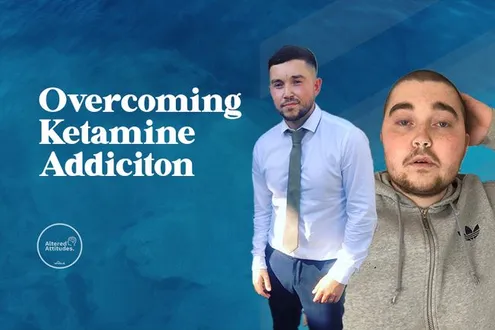Unlike illicit substances, alcohol is widely available and accepted. Often central to social situations, drinking is part of life for many people. As such, it can often be difficult to tell the difference between someone who enjoys a few drinks and a person with a genuine problem.
Alcoholism is characterised by a strong, often uncontrollable urge to drink. The more you drink, the more your body becomes used to its effects and the more you have to drink to maintain the high. Over time, dependence on alcohol develops and can often spiral into addiction.
Alcoholism usually refers to a physical dependence on alcohol but it can also include a psychological addiction. Being aware of the warning signs of alcohol abuse can help you to recognise if your alcohol consumption, or that of a loved-one, has crossed the line.
Alcoholism is a disease. It causes chemical changes in the brain that affect impulse control. While the severity of the disease varies from person to person, someone typically has an alcohol addiction if they rely heavily on alcohol and are unable to remain sober for an extended period of time.

Alcoholism invariably involves more than just consuming alcohol. While someone can appear to function normally, it doesn’t mean that they don’t have a problem. If life is being adversely affected and you’re unable to reduce or stop drinking on your own, it’s time to address the issue and seek help.
From consuming alcohol to cope with stress or self-medicating to mask mental health problems, rehab provides the opportunity to address the root of the pain that’s encouraging you to drink. A rehab setting boasts qualified and approachable staff trained to deal with alcohol addiction. From medical monitoring throughout the withdrawal process to consistent, round-the-clock care, rehab allows you the space away from your everyday life and environment to focus on your recovery in a caring environment. Invariably, offering a two-pronged approach to treatment, rehab deals with both the physical aspect of addiction and your mindset towards alcohol.
You may be wondering whether your drinking has become out of control. If any of the following warning signs seem familiar, it may be time to make some changes.
You may experience occasions when you’ve ended up drinking more than you thought you would or for longer than you’d planned. Keep an eye on the amount of time you spend drinking. This isn’t just the time spent consuming alcohol, but also the amount of time it takes to recover.
You may notice that your tolerance has increased and you crave and need more booze to get the same buzz. Over time, the brain adapts to alcohol and becomes less sensitive to its effects.
Your drinking may have started to edge out activities that you used to enjoy or prevent you from keeping up with responsibilities at home, work or school.
Drinking may be causing friction in your relationships. Alternatively, it may have led you to engage in risky behaviours. Yet despite this, you still continue to drink heavily.
When the effects of alcohol wear off, you may experience a range of withdrawal symptoms. Alcohol changes your brain chemistry. When you drink heavily over a long period of time, the brain tries to adapt. If you stop drinking, the brain has to readjust the chemical imbalance, thereby, creating uncomfortable physical and emotional sensations.
Your alcohol consumption may be affecting your health. If you have tried to cut back or quit but are unable to do so alone, admitting you have a problem is the first step.
The prospect of entering a rehab centre can be intimidating. However, if you are suffering from alcohol use disorder, getting help is crucial. It’s important to realise that ultimately rehab is a positive experience and committing to treatment is a progressive step towards improving your life.
Therapy in a residential rehab setting provides a safe space for you to take an honest look at yourself, your addiction and its effects on your behaviour and mental health. Although, this may be uncomfortable at times, therapy provides a powerful way to help you heal.
Rehab provides the opportunity to tackle the problem holistically and develop coping mechanisms to safeguard sobriety. The rehab environment removes you from your ordinary existence and allows you to focus on getting better.

Some people may be apprehensive about giving up drinking. If you’ve been a heavy drinker for a long time, you might have experienced problems on the occasions when you’ve tried to stop. Over time, your central nervous system adjusts to the constant presence of alcohol. If that presence suddenly drops, your brain still functions at a higher state which is what causes unpleasant physical and psychological withdrawal symptoms.
Detox involves allowing the body to rid itself of the presence of alcohol. If there is a high level of alcohol in the body or if detox is attempted too quickly, it can be dangerous as the body may go into shock. Detoxing in a controlled environment enables you to be as comfortable as possible. Medication can also be used to wean you off alcohol gradually and reduce the discomfort.
Symptoms of alcohol withdrawal can range from mild to serious and will be dependent on how much you drank and for how long. Milder symptoms, such as headaches, nausea and vomiting can usually be managed within a positive and supportive environment. More serious problems, including hallucinations and seizures, will require medical monitoring and medication.
If you’re feeling apprehensive about rehab, knowing what to expect can put your mind at ease. While treatment will be different for everyone, the process shares common features. Upon arrival, you’ll usually meet with an admissions co-ordinator and undergo a medical and psychological evaluation. Rehab staff will always answer any questions and inform you of any centre rules and expectations.
After detox, most people transition into therapy. From individual to group sessions, a variety of talking and psychotherapies can be incorporated into tailored treatment programmes. As you progress through your programme, the intensity of treatment tends to decrease.
Your treatment team should help you develop a maintenance plan to safeguard your sobriety when you leave the facility. A safe living environment and support system are essential for ongoing success. Peer support is fundamental to many treatment programmes. Most recovering addicts attend group meetings after they leave rehab and many will attend support groups forever. When recovery becomes challenging, a strong support system is essential.
Rehab covers a spectrum of services that are tailored to an individual’s specific needs. The first phase of any programme involves clearing alcohol from your system. While withdrawal is an important first step, it is not an effective treatment by itself. You’ll need further treatment, therapy and support to ensure long-term sobriety and recovery.
Inpatient programmes vary in length but require commitment to residential care. As an inpatient, you remain on-site and receive treatment within the setting. If you’re physically dependent, you may need to be medically monitored throughout the withdrawal process.
Residential rehab can be particularly helpful if you need medical monitoring to withdraw, as you will receive consistent support to cope with the physical and emotional challenges of the process.
Following detox, residential rehab involves staying within the setting and undergoing intensive therapy to help you deal with the emotional and behavioural aspects of your addiction.
Outpatient programmes offer an alternative option. If you have a milder alcohol dependency and a safe living environment, you may be able to detox while living at home. Outpatient detox often involves attending daily appointments to check in with your therapist.
Outpatient therapy can incorporate both individual and group sessions. Frequency and ongoing attendance will vary according to your specific needs.










